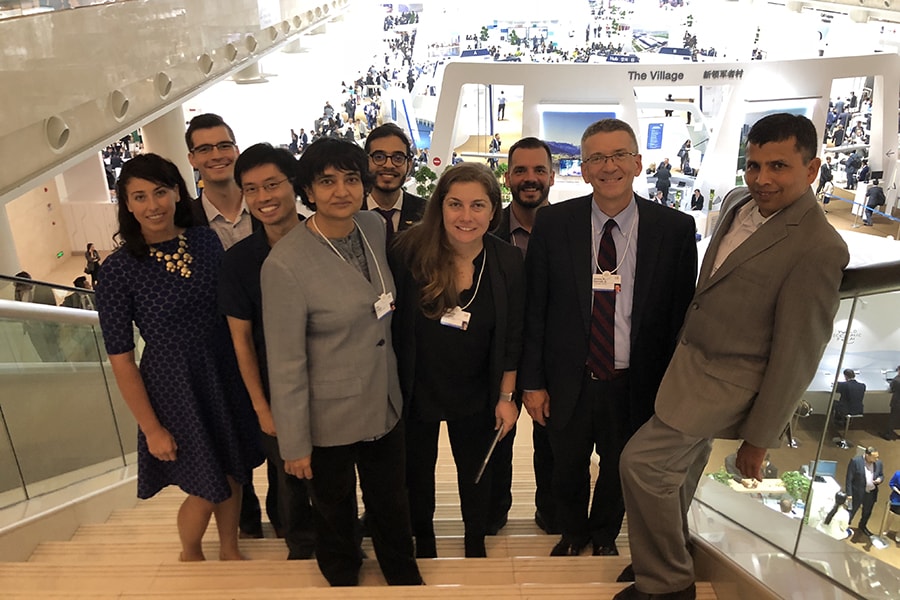CREATE Lab Director Visualizes, Inspires Global Impact
Poverty and prejudice shaped robotics professor Illah Nourbakhsh long before he came to Carnegie Mellon University. And since arriving in 1996, Nourbakhsh has devoted his considerable talents to addressing virulent ills — social and environmental, large and small.
Nourbakhsh, director of Carnegie Mellon's Community Robotics, Education and Technology Empowerment (CREATE) Lab was inspired by what he saw as a child in his native Iran and growing up as an immigrant in the United States.
"In Iran, extreme poverty was a half hour outside of Tehran, where people had open sewers and no running water," said Nourbakhsh, who also serves as the K&L Gates Professor of Ethics and Computational Technologies in CMU's Robotics Institute. "But the presumption when you come to America is that you're running away from that, and that the disparity of wealth doesn't exist."
And initially, that's what his family found when they immigrated to Kansas City. But after the 1979 Iranian Revolution and subsequent U.S. hostage crisis, things changed drastically. His family went from being "exotic" neighbors to having hateful bumper stickers affixed to their car.
"I went through a period of time when I was getting beat up every day at school," Nourbakhsh said. "And that idea of being assaulted every day because of where you're from burned into me a sense and understanding of what it's like to be in a situation where you are treated in a highly stereotyped fashion. That's driven me ever since."
Nourbakhsh's drive has been on display for 22 years at Carnegie Mellon, addressing poverty, the gender gap, gentrification and economic inequality.
But his most global impact may be his EarthTime project, a website that enables users to view the entire planet — or just a corner of it — to visualize the cumulative effects of a range of influences, including climate change, air pollution, trade, deforestation, immigration and economic inequality.
EarthTime is such a powerful tool that it has become a staple at the annual World Economic Forum in Davos, Switzerland, where Nourbakhsh and his team use it to help illuminate the latest issues facing humanity and the globe.
From watching solar flares and plants grow, to tracking deforestation and income inequalities, big data can help us see the world in intimate detail. Illah Nourbakhsh, professor of robotics from Carnegie Mellon and Matthew Hansen, a remote sensing specialist at the University of Maryland, show how visualizing big data can revolutionize the way we understand and imagine the world.
And while EarthTime has found acclaim on the global stage, Nourbakhsh has never forgotten how impactful his work can be for local communities. One of his early formative experiences as a CMU faculty member came from a project in the Pine Ridge Indian Reservation in South Dakota.
"What I saw was stunning," he said. "The average life expectancy was in the 40s. The level of unemployment was in the 80th percentile. And the children in the classrooms where I taught had no hope for the future. That was my first exposure to that kind of extreme hopelessness and poverty in America. And that made me question the fundamentals of how capitalism is played out in America."
His work in rural poverty led to his appointment as a trustee of the Claude Worthington Benedum Foundation, which works to improve education, community and economic development, health and human services in West Virginia and Southwestern Pennsylvania.
And his efforts have been recognized by Marshall University's June Harless West Virginia Hall of Fame.
"That means that even though we're so far away, we've done so much that we've made a real impact and moved the needle there," Nourbakhsh added. "To me that's a really rewarding and empowering feeling."
